Introduction
The impact of mobile money in Africa is one of the most exciting things to happen in finance in recent years. Across the continent, people are not just using their phones for communication, but also to send and receive money. This has changed how millions live and work.
In this article, you will learn what mobile money is, why it matters in Africa, and how it is helping people and businesses grow. Let’s get started.
What is Mobile Money?
Mobile money is a simple way to send, receive, and save money using a mobile phone. You don’t need a bank account. All you need is a phone and a mobile money account. With that, you can pay bills, buy airtime, send money to family, or even get loans and insurance.
This is a big deal in Africa, as many people live far away from banks. Some have never had access to one. Mobile money makes it easy to handle money safely, anytime and anywhere.
This tool has helped people, especially those in rural areas, take part in the economy. It is also creating new job opportunities. In fact, it has a lot in common with how business incubators support tech startups. Both are helping people grow and manage new ideas.
Why Mobile Money Matters in Africa
Now, let’s talk about why mobile money matters so much in Africa. Many people here have mobile phones but not bank accounts. Mobile money helps fill that gap. It gives more people the power to manage their money, send payments, and even save for the future.
In several African countries, mobile money is everywhere with daily users. It helps farmers, shop owners, students, and workers. Mobile money helps people take control of their finances and grow something meaningful.
Mobile money also saves time. Instead of travelling to a bank or waiting in long lines, people can send money with a few taps. It is safer than carrying cash, and it opens new chances for small businesses.
Brief Overview of its Impact on The Economy
The impact of mobile money on African economies is huge. It has added billions of dollars to the economy by helping more people take part in business. It supports new ideas, helps the government collect taxes, and makes payments faster and easier.
Thanks to mobile money, more people are working, trading, and saving. It is helping businesses grow, especially in areas where banks are not available. Just like how business incubators are driving innovation, mobile money is giving people tools to create and succeed.
Mobile money is also helping leaders measure the success of business incubators and their effect on the local economy. When people have easier access to digital money, it becomes easier to build businesses and get support.
Purpose and Structure of The Article
This article will guide you through how mobile money works, the challenges it solves, and the benefits it brings to Africa. You will see how much mobile money has grown and has been infused into the African economy.
As you read, you’ll also learn how digital money benefits businesses and individuals. We’ll explore how mobile money has helped with financial inclusion. Finally, we’ll look into the challenges and opportunities involved in financial expansion.
Growth and Adoption of Mobile Money
The impact of mobile money on African economies has been huge. It has changed the way people send, receive, and save money. Now, millions of people across Africa use their phones to do financial transactions every day. This change is helping many people who didn’t have access to banks before.
Historical Background and Early Adopters
Mobile money started in Africa more than ten years ago. Kenya was one of the first countries to try it out. A platform called M-Pesa allowed people to send money with just their phones. At the time, many people didn’t have bank accounts, so this was a big deal.
Soon after, other countries began to use mobile money too. People in rural areas and busy cities found it helpful. It made life easier, faster, and safer. And just like that, mobile money started to grow across the continent.
Key Drivers of Mobile Money Growth in Africa
Many things helped mobile money spread quickly in Africa.
First, many people still don’t have bank accounts, so they need another way to manage money.
Second, mobile phones are common, even in remote places.
Third, telecom companies and banks started working together to make digital payments easier and safer.
Most importantly, mobile money services grew to offer more than just sending money. Now, people can also use their phones to save money, borrow loans, buy insurance, and even pay school fees. These new features helped people trust the system more. Mobile money services offer tools for everyone to use, no matter where they are.
Popular Mobile Money Platforms Across Countries
Many countries now have mobile money platforms that fit their needs. Kenya’s M-Pesa is still one of the most popular. In Nigeria, people use Paga, and in Ghana, MTN Mobile Money is widely used.
Other countries like Tanzania, Uganda, Rwanda, and Senegal are also catching up. These services often work with banks, businesses, and even small shops. They make it easy for people to pay or receive money quickly.
Statistics on User Growth and Transaction Volumes
Mobile money is growing really fast. Today, Africa has more than 1.1 billion mobile money accounts. That is more than half of all mobile money accounts in the world.
In 2024 alone, Africans made transactions worth 1.1 trillion dollars using mobile money. Every month, more than 500 million people use these services. And every year, these numbers keep going up.
This shows just how important mobile money is becoming for everyone, from students and traders to farmers and families. It also shows how technology can help include more people in the economy.
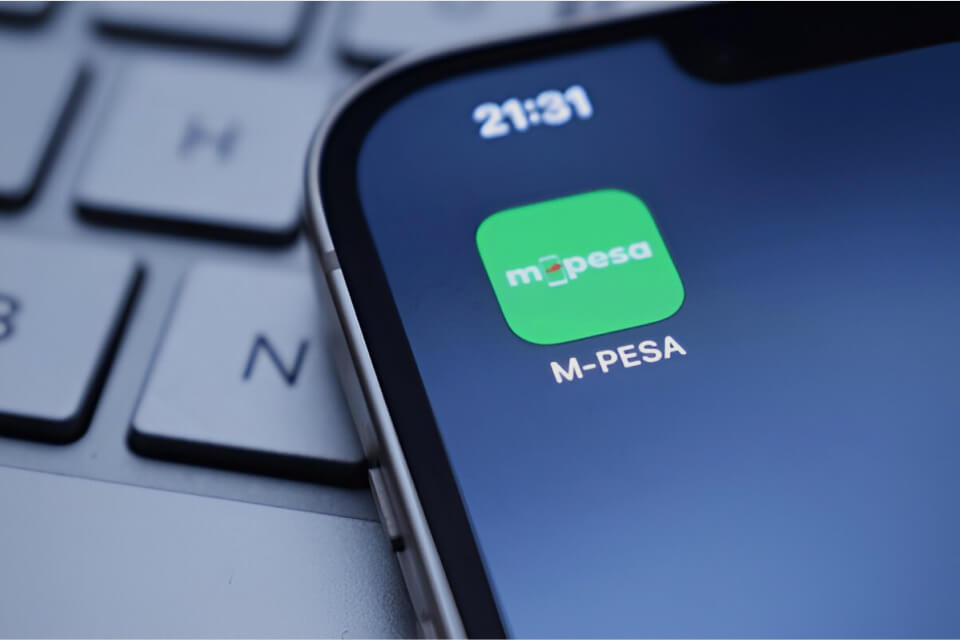
Mobile Money Economic Benefits for Individuals and Businesses
The impact of mobile money on African economies is big and growing every day. It has changed how people send, receive, and save money. Today, both individuals and businesses use mobile money for many daily activities. As more people join, it also helps to integrate digital payments with African banking systems and supports stronger, more inclusive economies.
Easier Access to Savings and Transfers
First, mobile money makes it very easy for people to save and move money. In many parts of Africa, banks are far away or hard to access. However, with just a mobile phone, anyone can open a mobile money account. This allows people to send money to family and friends, save for future needs, and avoid carrying cash.
In the end, this builds safer habits and helps more people join the formal economy. This is a key part of the role of digital payments in financial inclusion. When people can access money services easily, they are more likely to save and plan ahead.
Supporting Small Business Operations and Growth
Next, let’s look at small businesses. They are the backbone of many African economies. Mobile money helps them run smoothly. Businesses can receive payments fast, pay their suppliers, and keep track of their income and expenses.
Also, mobile money platforms now offer extra services like loans and insurance. These tools help business owners grow and hire more workers. This shows how mobile money supports job creation and local development. It is especially helpful in areas where access to banks is limited.
Enabling Faster Payments and Reduced Cash Dependency
Another benefit is speed. Mobile money makes payments faster. Before, people had to wait in long lines at the bank or worry about having enough cash. Now, with a phone, payments can be made in seconds. This speed helps everyone – from workers getting paid on time to shops buying supplies quickly.
In fact, governments also use mobile money to send out public payments or collect taxes. It improves how money flows in the economy and builds trust. This is one clear way the government is regulating digital payments to improve public services.
Also, moving away from using too much cash makes life easier and safer. It cuts down the risk of theft and lowers the cost of handling physical money.
Promoting Entrepreneurship and Digital Commerce
Mobile money also supports new ideas. Many young people now run online businesses and delivery services. Thanks to mobile money, they can accept payments from customers far away, not just in their towns.
This growth in online selling shows the impact of digital payments on African agribusinesses too. Farmers can now sell their produce through apps, accept digital payments, and even get farming advice. As mobile money links more with banking, it opens new doors for business growth in every sector.
At the same time, it teaches entrepreneurs how to promote digital payments adoption. They start by using mobile money, then teach others, and slowly more people join the digital economy.
Mobile Money’s Role in Financial Inclusion
The adoption of mobile money in African economies is helping millions of people get access to financial services using just their mobile phones. Many of these people could not use banks before. Now, mobile money is changing lives and supporting economic growth across the continent.
Reaching Unbanked and Underserved Populations
In many parts of Africa, especially in rural areas, banks are far away or hard to reach. But mobile money makes it possible for people to send and receive money without needing a bank account. They can also pay bills, save money, or get small loans right from their phones.
Now, more than one billion people in Africa have mobile money accounts. Countries like Kenya and Tanzania are leading the way. Every day, people use mobile money to buy goods, pay for services, and support their families. This helps them take part in the economy and build better lives.
Empowering Rural and Low-Income Communities
Mobile money gives people in rural and low-income areas more control over their money. For example, farmers can now get paid directly after selling their crops. This means they get their money faster and more safely.
Also, small shop owners can accept digital payments, making business easier and safer. This kind of access reduces poverty and helps communities grow. In fact, mobile money has added billions of dollars to the African economy. When we integrate digital payments with African banking systems, it becomes even easier for these communities to thrive.
Gender impact – Improving Access for Women
In many African communities, women face extra challenges when trying to manage their money. Some are not allowed to visit banks or own accounts. But mobile money is helping change that.
Women can now save money, send funds to loved ones, and even take small loans without going to a bank. This gives them more independence and helps them start small businesses. It also improves the lives of their families. The role of digital payments in financial inclusion is especially important for women, as it helps create fairness and new chances.
Contribution to Closing the Financial Access Gap
Across Africa, mobile money has played a big part in closing the gap between people who have financial services and those who do not. In countries like Nigeria, Ghana, and Kenya, more and more people are starting to use mobile money every day.
In many West African countries, mobile money now adds more than five percent to the country’s income. This is a big deal. It shows how digital payments are not only making life easier, but also building stronger economies. The role of the government in regulating digital payments is very important here. Governments help make sure mobile money is safe and fair for everyone.
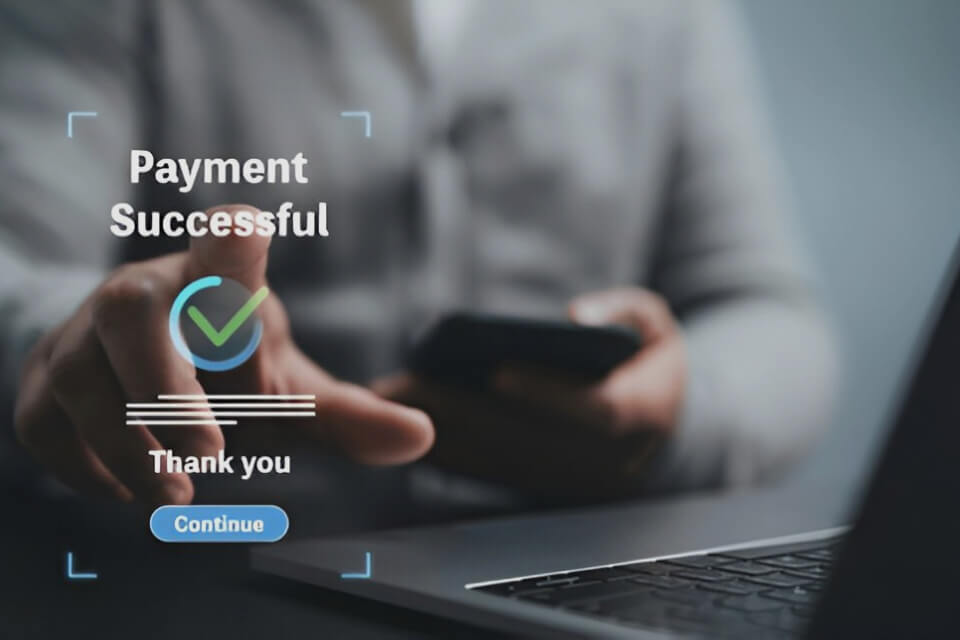
Challenges and Opportunities for Mobile Money Expansion
The impact of mobile money on African economies has been powerful. It has changed how people send money, pay for goods, and access financial services. But even with this growth, there are still many challenges to solve. At the same time, there are exciting opportunities waiting to be explored.
Regulatory and Security Concerns
To begin with, one big challenge is regulation. Governments want to keep people safe from fraud and scams. They also want to stop bad people from using mobile money for illegal things. However, when rules are too strict or unclear, they can slow down the growth of mobile money.
Also, in some places, mobile money providers follow different rules than banks. This makes it harder to integrate digital payments with African banking systems. It can lead to confusion for users and delays in building stronger financial services.
Besides that, safety is another major concern. Mobile money systems must protect users from hackers and data theft. If people don’t feel safe, they won’t use these services. So, having clear rules and strong security will help build trust and increase usage.
Infrastructure and Connectivity Issues
Another challenge is the lack of good internet and electricity in some areas. In many rural parts of Africa, mobile networks are weak, and electricity is not always available. This makes it hard for people to use mobile wallets or send digital payments.
To fix this, African countries need to improve internet access and power supply. They also need to support people by making smartphones more affordable. Just as important, they should teach digital skills to help users understand and use mobile money easily.
All these steps will help unlock the impact of digital payments on African agribusinesses and many other industries that depend on fast and simple payments.
Market Competition and Pricing Challenges
There is also strong competition among mobile money companies in Africa. This can be good because it pushes companies to offer better services and lower prices. But it can also be hard, because too much competition might lead to pricing problems.
For example, high transaction fees are still common in many places. This can stop people with low income from using mobile money often. To fix this, providers must find a balance. They need to keep prices low for users but also find ways to stay in business and grow.
Offering extra services like loans, savings, and insurance can help. These value-added services can help users stay loyal while helping companies earn more.
Potential for Innovation and Cross-Border Growth
Even with these challenges, the future looks bright. There are so many new ideas and technologies that can make mobile money even better. For example, using artificial intelligence and better security tools can make payments faster and safer.
Mobile money is no longer just for sending cash. Today, people can use it to save money, pay for online shopping, or even get small business loans. Also, cross-border payments are growing fast. People in different countries can now send and receive money more easily. This is helping trade and family support across regions like ECOWAS and East Africa.
As this growth continues, governments need to make good rules that protect users, support businesses, and allow innovation to grow.
Case Studies of Mobile Money Impact
Mobile money is changing lives across Africa. It helps people save, send, and receive money using their phones. This is very helpful in places where banks are hard to reach. Let’s look at how this simple idea is making a big difference.
M-Pesa in Kenya – a Pioneer Success Story
Let’s start with Kenya. In 2007, Safaricom and Vodafone launched M-Pesa. It allowed people to send money by phone without needing a bank. Over time, it grew to over 41 million users!
Many people in Kenya now use mobile money to pay bills, save money, and even get loans. It helps farmers, shop owners, and even taxi drivers. Today, M-Pesa and other mobile money services help drive Kenya’s economy. They have added billions to the country’s growth.
This is a great example of how digital payments can work hand-in-hand with African banking systems. It makes life easier for everyone.
MTN Mobile Money in West Africa
Now, let’s move to West Africa. MTN Mobile Money, also called MoMo, is very popular in Ghana, Nigeria, and Côte d’Ivoire. It helps people send money, pay for things, and even receive money from other countries.
In Ghana, more than 80 percent of all money transactions now happen through mobile money. That is a huge part of the country’s economy. It shows how powerful mobile money can be.
Also, digital payments help farmers and traders. They don’t need to carry cash. Payments are faster and safer. This is one of the clear ways digital payments are helping African agribusinesses.
Mobile Money in Refugee and Humanitarian Settings
Mobile money isn’t just for business. It also helps people in tough situations. In places like Uganda and Tanzania, many refugees use mobile money to receive help. Aid groups send money straight to their phones.
This system makes sure the money reaches the right people. It also stops theft or delays. Refugees can buy what they need and manage their own money.
This shows how digital payments help with financial inclusion. Even people with no bank accounts or homes can now take part in the economy.
Real-Life Stories of Financial Transformation Through Mobile Money
Before, traders used to carry cash everywhere. It was slow and risky. But now, with mobile money, they receive payments from customers quickly. They can also send money to their family and save a little every week.
Through their mobile wallet they can also have access to small loans. This helps them to feel safer and more in control. There are many stories like this across Africa.
These stories show how mobile money helps people grow. It gives them power and freedom. The more people use mobile money, the more it helps the economy grow.
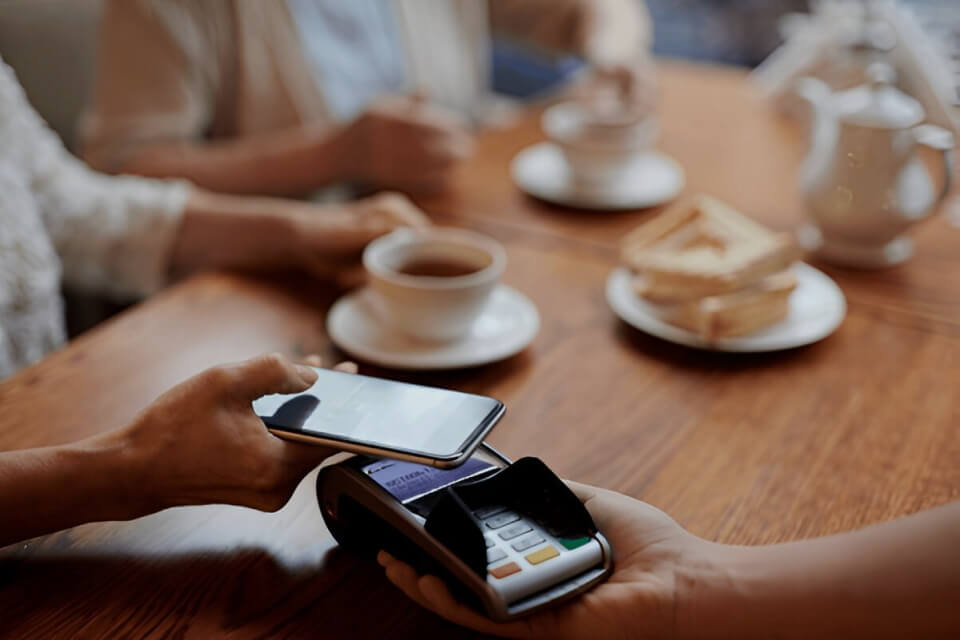
Frequently Asked Questions (FAQs)
1. How does mobile money benefit individuals and businesses?
Mobile money offers easy, secure ways to send and receive money, access credit, save, and pay bills, helping individuals and businesses manage finances and grow.
2. What role does mobile money play in financial inclusion?
Mobile money brings banking services to millions without traditional bank access, especially in rural areas, promoting economic participation and reducing poverty.
3. What challenges does mobile money face in Africa?
Challenges include regulatory differences, cybersecurity risks, limited digital literacy, and infrastructure gaps that can slow adoption and trust.
4. What opportunities exist for mobile money expansion?
Opportunities include integrating digital payments with African banking systems, expanding services like insurance and credit, and increasing cross-border transactions.
5. What is the role of the government in mobile money development?
Governments regulate digital payments to ensure security and fairness, while promoting policies that encourage adoption and integration with formal financial systems.
Conclusion
The impact of mobile money on African economies is profound and growing. By enabling millions to access financial services, mobile money drives economic activity, supports businesses, and promotes financial inclusion across the continent. Its contribution to GDP and daily transactions highlights its central role in Africa’s digital economy.
To maximise these benefits, it is essential to integrate digital payments with African banking systems and support the impact of digital payments on African businesses. Governments also play a vital role in regulating and creating an enabling environment for mobile money to thrive, ensuring it continues to transform African economies for the better.
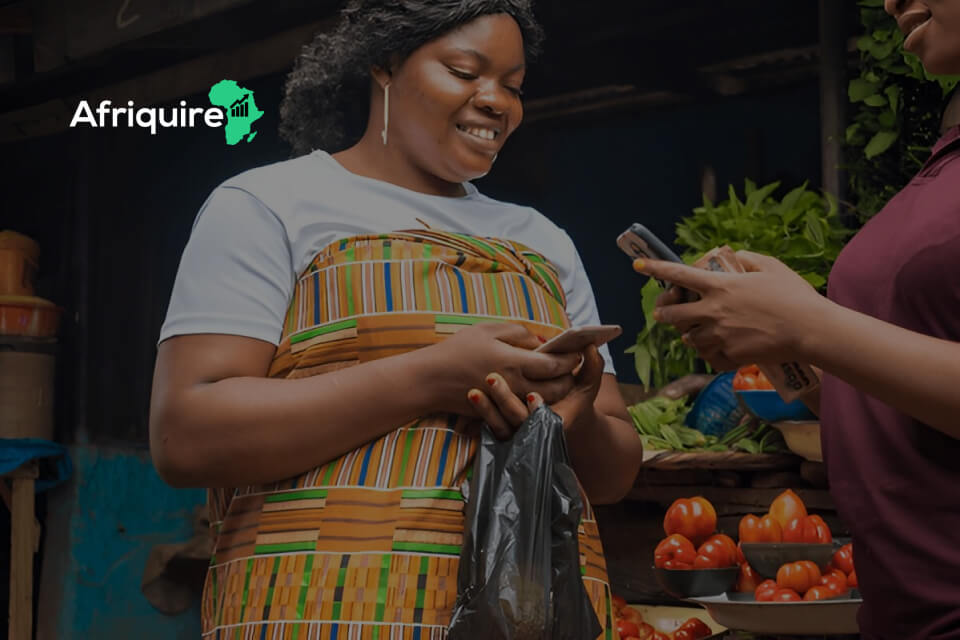


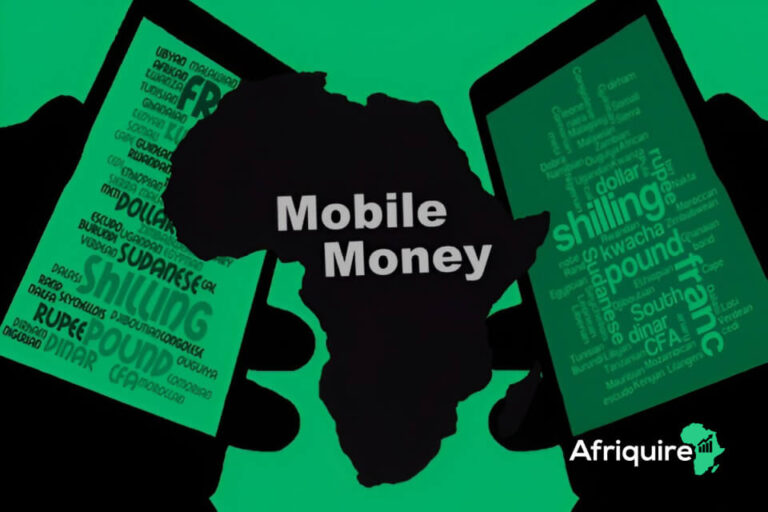
1 thought on “Mobile Money Drives Growth in African Economies”
Thanks for expressing your ideas. Something is that college students have an option between fed student loan and also a private education loan where it truly is easier to go with student loan consolidating debts than over the federal education loan.